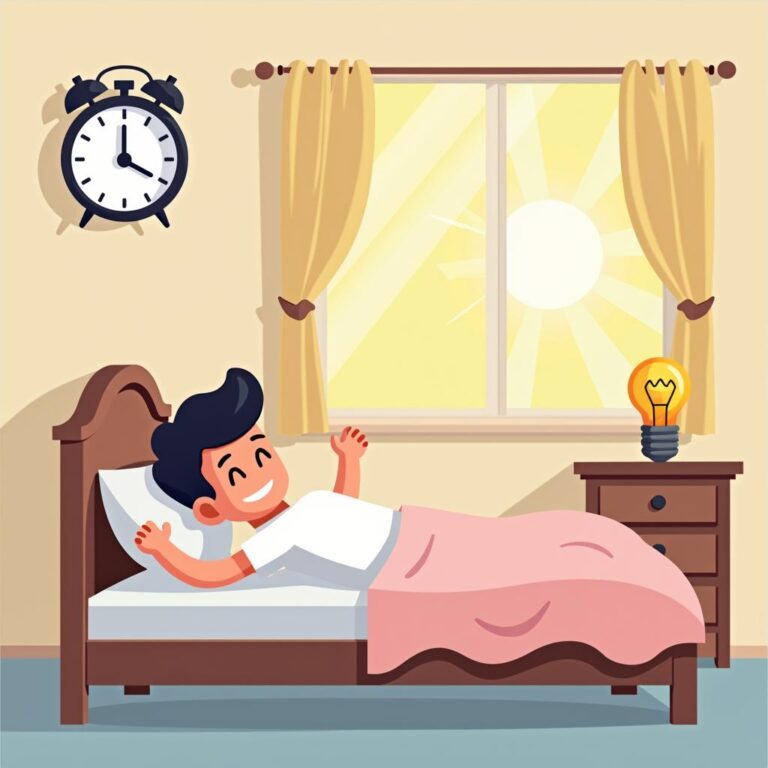Sleep is a fundamental part of our daily lives, playing a crucial role in our overall health and well-being. It’s not just the quantity of sleep that matters, but the quality as well. Many people struggle to get a good night’s rest, often due to habits formed over years. Here, we’ll discuss the nighttime habits to avoid for better sleep, so you can improve your sleep quality and enhance your health.
1. Excessive Screen Time Before Bed
In today’s digital age, many individuals find it hard to put down their phones, tablets, or laptops before bedtime. The blue light emitted from screens can disrupt melatonin production, the hormone responsible for regulating sleep. This leads to difficulties falling asleep. To improve your sleep quality, aim to avoid screens at least an hour before you go to bed. Instead, consider engaging in relaxing activities like reading a book or meditating.
2. Consuming Caffeine in the Evening
Caffeine is a well-known stimulant found in coffee, tea, chocolate, and many soft drinks. Consuming these beverages too close to bedtime can interfere with your ability to fall asleep. Caffeine can remain in the body for several hours, making it important to cut off caffeine intake at least six hours before bedtime. Opt for herbal teas or decaffeinated drinks in the evening to help promote better sleep.
3. Heavy Meals Before Bedtime
Eating a large, heavy meal right before bed can lead to discomfort and digestive issues, which can keep you awake. It’s advisable to finish eating at least two to three hours before going to sleep. If you need a snack, stick to light options like yogurt or a piece of fruit, which are less likely to cause any disruptions to your sleep.
4. Drinking Alcohol Late at Night
Many people believe that alcohol can help them to fall asleep faster; however, this is a misconception. While alcohol may initially make you feel drowsy, it actually disrupts the sleep cycle and can lead to less restorative sleep. Additionally, it can cause you to wake up later in the night, making it harder to get the quality rest you need. Limiting alcohol consumption in the hours leading up to bedtime is crucial for better sleep.
5. Inconsistent Sleep Schedule
Maintaining a consistent sleep schedule is essential for regulating your body’s internal clock. Going to bed and waking up at different times each day can confuse your circadian rhythm, leading to difficulty falling asleep. Strive to go to bed and wake up at the same time every day, even on weekends. This consistency helps train your body to expect sleep at particular times and improves sleep quality.
6. Engaging in Intensive Workouts Before Bed
While regular exercise is beneficial for sleep, working out intensely right before bed can have the opposite effect. Physical activity raises your heart rate and body temperature, making it harder to wind down. Try to schedule your workouts for earlier in the day or at least several hours before you plan to sleep. This will give your body time to relax and reduce any residual energy.
7. Stress and Anxiety
Your mental well-being significantly impacts your sleep quality. If you spend your evenings engaging in stressful activities or worrying about the day’s events, you may find it difficult to fall asleep. Incorporating relaxation techniques such as deep breathing, meditation, or gentle yoga can help calm your mind. Creating a relaxing bedtime routine can signal to your body that it’s time to wind down.
8. Napping Late in the Day
Naps can be beneficial, but napping too late in the afternoon can interfere with your nighttime sleep. If you find that you need to rest during the day, try to limit naps to earlier in the afternoon and keep them to 20-30 minutes. This way, you can recharge without affecting your ability to fall asleep at night.
9. Overly Bright Sleep Environment
The environment in which you sleep plays a large role in your ability to get quality rest. If your bedroom is too bright, it may signal to your body that it’s time to be alert. Consider using blackout curtains to block out external light or an eye mask to create a dark sleeping environment. Maintaining a cool, dark room can contribute significantly to better sleep quality.
10. Ignoring Comfort
Sleep comfort is critical for achieving restorative sleep. Neglecting your mattress, pillows, and bedding can lead to discomfort throughout the night. Regularly assess your sleep environment for comfort and support. Invest in a quality mattress and pillows that cater to your sleeping style, and ensure that your bedding is clean and soft. Small changes can significantly enhance your sleep experience.
Conclusion
Improving your sleep quality involves recognizing and avoiding certain nighttime habits that can disrupt your rest. By making small adjustments to your evenings, from the environment you sleep in to your daily practices, you can greatly enhance your sleep quality and overall well-being. Remember, better sleep leads to a healthier, more productive life. Start implementing these changes tonight and enjoy the benefits of restful nights and rejuvenated mornings.







